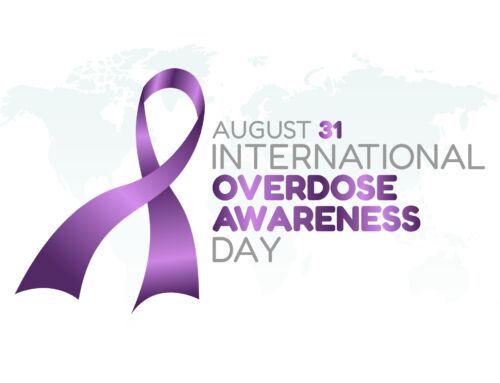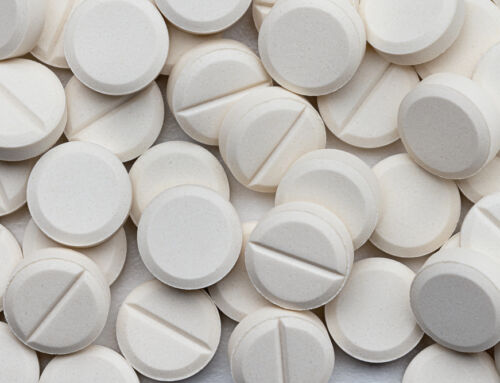Marijuana use has become increasingly normalized in the United States, especially in states like New Jersey where recreational use is now legal for adults. With dispensaries open and cannabis-derived products widely available, many view marijuana as a harmless or even beneficial substance. However, this shift in perception has led to the proliferation of myths about marijuana, obscuring the potential risks associated with its use—including addiction.
At Greenbranch Recovery in Egg Harbor Township, we believe that public health starts with public awareness. Dispelling marijuana myths is crucial to protecting individuals and families from the harmful effects of drug abuse. In this article, we’ll address the most common myths, clarify the reality of cannabis addiction, and explore how New Jersey residents can make informed choices.
Myth 1: Marijuana Is Not Addictive
One of the most persistent myths about marijuana is that it’s not addictive. This belief stems from comparisons with more visibly destructive substances like heroin or methamphetamine. But the truth is clear: cannabis use disorder is a diagnosable condition recognized by the Diagnostic and Statistical Manual of Mental Disorders (DSM-5), published by the American Psychiatric Association.
Research shows that around 9% of people who use marijuana develop a use disorder. For those who begin using in adolescence, that number climbs to nearly 1 in 6. Among daily users, it can reach 50%. Continued use despite negative consequences—such as problems at work, school, or in relationships—is a hallmark of addiction.
People struggling with cannabis use disorder often experience withdrawal symptoms when they attempt to stop. These may include irritability, sleep disturbances, anxiety, loss of appetite, and even physical discomfort. These signs mirror the withdrawal profiles of other drugs, reinforcing marijuana’s addictive potential.
If you think you might need help, call (609) 622-5101 or visit our admissions page today.
Myth 2: Medical Marijuana Is Harmless
While medical marijuana has legitimate uses—particularly in managing chronic pain, nausea from chemotherapy, or certain neurological disorders—its therapeutic value does not mean it’s without risk. High THC content in some cannabis-derived products can lead to cannabis intoxication, especially when used without medical supervision.
Even among patients using cannabis for medical purposes, there’s a significant risk of developing dependency if dosage and frequency are not carefully managed. Using cannabis without proper oversight can contribute to adverse effects on the brain, including memory loss, poor decision making, and diminished reaction time.
Myth 3: Smoking Cannabis Is Safer Than Tobacco
Another widespread myth is that smoking cannabis is safer than smoking tobacco. While the substances are different, marijuana smoke contains many of the same toxins and carcinogens as cigarette smoking. Inhaling any combusted substance—whether it’s cannabis or tobacco—can damage the respiratory system and lead to chronic respiratory problems.
Some studies even suggest that marijuana smokers inhale more deeply and hold smoke in their lungs longer than tobacco users, potentially increasing exposure to harmful substances. Regular cannabis smoking has been linked to chronic bronchitis, coughing, and increased mucus production.
Myth 4: Cannabis Has Minimal Impact on Mental Health
The idea that marijuana has little to no effect on mental health is one of the more dangerous marijuana myths. While some individuals may use marijuana to cope with anxiety or depression, research suggests that using cannabis—especially high doses or frequent use—can worsen mental illnesses or trigger new symptoms.
Heavy marijuana use has been associated with an increased risk of psychotic disorders, such as schizophrenia, particularly among those with a family history of such conditions. Other mental illnesses potentially exacerbated by cannabis include bipolar disorder and severe depression.
Cannabis use can also complicate the diagnosis and treatment of co-occurring disorders, masking symptoms or interacting with prescribed medications. For those already managing mental health conditions, smoking marijuana can be a risk rather than a relief.
Myth 5: Marijuana Is Not a Gateway Drug
The “gateway drug” theory has long been debated, but there is a growing body of research that supports a nuanced view. While most marijuana users do not go on to use other substances, those who start using marijuana at a young age are statistically more likely to try other drugs later in life.
This doesn’t mean marijuana use causes addiction to harder drugs, but it can normalize drug use and reduce the perceived risk of experimenting with more dangerous substances. The risk is especially high when combined with other risk factors, such as trauma, untreated mental illness, or unstable home environments.
Additionally, research shows that THC can alter brain reward systems in a way that may prime users for increased sensitivity to other addictive substances, contributing to substance use progression.
Myth 6: Recreational Use Has No Long-Term Effects
Because marijuana is now legal in many states, including New Jersey, some believe that recreational use is completely safe. But research suggests otherwise. Long-term marijuana use has been linked to reduced short term memory, impaired cognitive function, and diminished academic or occupational achievement.
The adverse health effects of regular use are not limited to the brain. Chronic cannabis users may also suffer from cardiovascular issues, and marijuana use during pregnancy has been associated with developmental delays in children.
Furthermore, because modern marijuana often contains much higher THC levels than in past decades, today’s users may be at an increased risk for cannabis addiction and other harmful effects not seen with lower-potency products.
If you or a loved one is struggling, call (609) 622-5101 or visit our admissions page today.
Myth 7: It’s Easy to Quit Marijuana
Many assume that stopping marijuana use is simple—just a matter of willpower. But for individuals with cannabis use disorder, quitting can be extremely difficult. Like with other drugs, dependence leads to tolerance, meaning that users must consume larger amounts to feel the same effect, and then face withdrawal when they try to quit.
Common cannabis withdrawal symptoms include insomnia, headaches, mood swings, irritability, and weight loss. These symptoms can persist for days or even weeks, making relapse more likely without professional support.
Because marijuana addiction often carries less stigma than alcohol or opioid addiction, individuals may downplay their use or avoid seeking help. But the need for treatment is just as real.
Myth 8: All Methods of Cannabis Consumption Are Equally Safe
While much of the public conversation focuses on smoking marijuana, it’s important to recognize that cannabis is now consumed in many forms—edibles, tinctures, concentrates, and vapes among them. Each method delivers THC differently, and that can have important health implications. Edibles, for instance, have a delayed onset and longer duration, which often leads to unintentional overconsumption and unpleasant effects such as extreme anxiety, nausea, or panic. According to the American Addiction Centers, emergency room visits related to cannabis edibles have increased due to their potency and unpredictability.
Vaping is another method that’s often misunderstood. Though marketed as a safer alternative to smoking, vaping cannabis can introduce harmful additives and has been linked to serious lung injuries, particularly when unregulated products are used. Regardless of the delivery method, the risks tied to THC consumption remain significant. These modern forms of use present new challenges in assessing tolerance, measuring doses, and understanding long-term health effects.
Myth 9: CBD is Safer than TCH
With the explosion of cannabis products on the market, many people confuse cannabidiol (CBD) with tetrahydrocannabinol (THC). While both are compounds found in cannabis, their effects are drastically different. THC is the psychoactive element that can lead to intoxication and dependency, while CBD is non-psychoactive and generally considered to have a low risk for addiction. According to Harvard, CBD may offer some therapeutic benefits, such as reducing inflammation or anxiety, but it doesn’t produce the “high” associated with THC.
That said, not all CBD products are created equal. Some unregulated products marketed as “CBD” have been found to contain measurable levels of THC, potentially exposing users to effects they didn’t anticipate. Misunderstanding the distinction between these compounds can lead to accidental overuse, delayed treatment, or a false sense of safety regarding cannabis consumption. Accurate information is essential for making informed health choices.
Myth 10: Few People Seek Treatment for Cannabis Use Disorder
Cannabis addiction is often minimized, leading many to believe that very few people ever require formal treatment. However, the data tells a different story. According to the New Jersey Department of Human Services, more than 82,000 individuals entered substance use treatment in the state in 2023, with marijuana cited as a primary or contributing substance in a significant portion of those admissions. These numbers highlight the prevalence of cannabis-related issues, particularly among adolescents and young adults.
Treatment for cannabis use disorder is real, necessary, and increasingly common. Individuals who struggle to stop using marijuana often face withdrawal symptoms, relapse, and functional impairments that interfere with daily life. The growing number of treatment admissions underscores the need for professional support and the importance of public education on the risks of marijuana addiction.
Myth 11: Cannabis Use Is Always a Standalone Issue
It’s a mistake to view cannabis use in isolation. Many individuals struggling with cannabis use disorder also face co-occurring mental health conditions such as anxiety, depression, or trauma-related disorders. Often, marijuana is used as a way to self-medicate these symptoms, which can complicate diagnosis and prolong the cycle of addiction. Without addressing the underlying mental health issues, recovery from cannabis use is much more difficult.
At Greenbranch Recovery, we take co-occurring disorders seriously. Our integrated approach ensures that clients receive support for both substance use and mental health needs. By treating the whole person—rather than just the addiction—we increase the chances of long-term recovery and emotional stability. Recognizing the link between cannabis use and mental health is essential to delivering effective, respectful care.
Finding the Right Support: Addiction Treatment for Marijuana Use
Recognizing the need for help is the first step toward recovery, and at Greenbranch Recovery, we offer comprehensive, evidence-based addiction treatment tailored to the unique challenges of cannabis use disorder. Our programs are designed to address not just the substance use itself, but also the underlying factors that often contribute to it—such as trauma, mental health conditions, and co-occurring mental illnesses.
Our treatment options include individual and group therapy, education, family support, and relapse prevention planning. Clients work closely with licensed professionals to build coping skills, manage triggers, and create a path toward sustainable recovery.
Because marijuana addiction often coexists with other behavioral or psychological issues, our clinicians are trained to screen for psychotic disorders, anxiety, depression, and other mental disorders that may require integrated care. Whether you are experiencing withdrawal symptoms, a significant risk of relapse, or just feel overwhelmed by your relationship with marijuana, our team is here to help.
We provide a safe, supportive environment for anyone ready to take back control. Located in Egg Harbor Township, we serve Atlantic County and surrounding communities. Recovery from cannabis addiction starts with a phone call. Reach out to us at 609-622-5101 or visit our admissions page to learn more about our programs and how we can help you or a loved one today.




